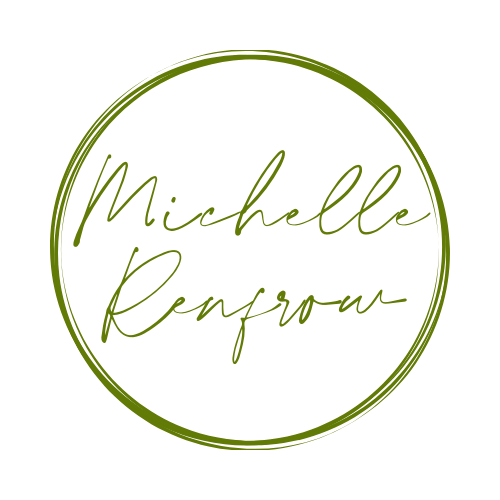
Having resilience is something I wasn’t so familiar with. I was taking some professional development classes and had this amazing speaker, Dr. Katherina Gilboa. Her book was called from Stressed to Resilient. I listened. I took voracious notes. I was DETERMINED to become resilient! I bought her book before the course was even over. I was going to improve myself!
I watched her interview on the Today Show while waiting for my amazon package to arrive. I knew that this book was going to be the key to me becoming resilient! But I have to admit I never actually thought that hard about whether or not I already was resilient. Whenever something tough is going on or multiple tough things are going on I just get up and keep moving. I never actually thought about what the definition of “just keep swimming” was for me.
The process and the outcome
Resilience (according to the everydayhealth.com website) “… refers to both the process and the outcome of successfully adapting to difficult or challenging life experiences, according to the definition from the American Psychological Association (APA). It’s having the mental, emotional, and behavioral flexibility and ability to adjust to both internal and external demands, per APA.”
So Dory, in the epically famous movie Finding Nemo, is actually practicing resilience when she uses her catchphrase, “Just keep swimming”. If you think deeper, It can be extremely stressful to be in a constant state of confusion. Where am I going? What was I just looking for? Dory is living her life 10 seconds at a time with the constant nagging feeling in the back of her mind that something is missing, or not completed. That is SOOOO stressful!
So the book comes. And I gleefully dive in. There’s a quiz! I LOVE quizzes!!! I quickly answer all the questions. Wait… this can’t be right… I’M RESILIENT??? UMMMM… Let’s redo this quiz. It still says I am resilient! OKAY… Let’s read about WHY this book thinks I am resilient. There has to be a glitch. Lol

8 Resilience skills that everybody must have
In her book she outlines 8 resilience skills that everybody must have. They are “building connections, setting boundaries, being open to change, managing discomfort, setting goals, identifying options, taking action and perseverance (keep trying).” I literally looked at all of these 8 skills and thought wow I got this!
This list and this book are a way of identifying all the skills you have and which ones there may be kinks in the chains. I know, for example, I have to work on my boundaries. I have a hard time saying “No” to others as well as sometimes, I overstep my boundaries sometimes. Of course not to be spiteful or mean, it’s just what I do. I’m a work in progress. So of course it’s my “kink in the chain”
There are then what Dr. G calls attributes. These are the traits you can develop or already have developed. They are adaptability, sense of humor, empathy, optimism, confidence, faith (in ideas) and knowledge gained from past struggles and successes. I spent some time looking at these attributes and determining where I fall in the “success” category. KILLING IT! Lol. I mean who doubted this right? It’s me after all. Lol

Now let’s talk about stress
Dr G, as her website and blog and newsletter call her, states that there is a lie related to stress. She says, “That stress is poison. Does this sound familiar to you?
“Stress is bad and bad for us!” We’ve been taught to fear stress—to avoid it, to minimize it, to eliminate it, to get away from it before it kills us. If you’re causing stress in someone’s life, you’re the villain.
If someone is causing stress in your life, that relationship is toxic—get out! If you’re stressed, you’ll never be happy.
In my twenty years as a physician, I have absolutely seen the toll that stress takes on the human body and mind. The damage can be fatal. So how can it possibly be a lie?
Because that idea—that stress is a poison and should be avoided at all costs—ignores reality and sets people up to fail.
In reality, all change brings stress. All change. Big change, like a new boss. Small change, like a cellphone upgrade. The change you hate, like a cancer diagnosis.
The change you love, like a promotion. The change you predicted, like a child growing up and moving out. The change you could never have predicted, like a worldwide pandemic. All change brings stress, and every day brings change. If the only “cure” to the damage stress does to us is to avoid it, we’re all going to fail!”
There are 7 key factors in resilience
According to the everydayhealth.com website there are 7 key “C” words – factors in resilience.
The website cites, “The 7 Cs resilience model was developed by Ken Ginsberg, MD, a pediatrician specializing in adolescent medicine at the Children’s Hospital of Philadelphia and a cofounder of the Center for Parent and Teen Communication, to help children and adolescents build resilience.
The 7 Cs are: competence, confidence, connection, character, contribution, coping, and control. With all these skills and factors in place we can build inner strength and utilize outside resources — regardless of age, according to Dr. Ginsberg.”
There are TONS of ways one can build their resilience. Everydayhealth has a great list. Check these out and see which ones work for you and your family.

- For minor annoyances, ask yourself: Will it matter in five years? If it won’t matter in five years, perhaps it isn’t worth disturbing your peace today.
- Give no one the power to lower your self-worth. Believe in those who believe in you. Look at yourself with the eyes of the people who accept and love you unconditionally.
- At least once a week spend quality time with someone who inspires you.
- Think of the larger purpose of your life. Live your days aligned with that sense of purpose
- Volunteer. Research shows that volunteering is associated with better physical and emotional health and even increased longevity.
- Recognize that most people are struggling in their own unique way. Keep a low threshold when it comes to offering forgiveness.
- Embrace your vulnerability. Be authentic. Accept that it’s okay to feel sad once in a while.
- Be kind, especially to yourself. Kindness is a marker of strength and not weakness.
- Lower your threshold to feel grateful. Be grateful for a deep breath, the smell of coffee, the smile of a loved one, or the taste of water.
- Instead of fighting the uncontrollable, creatively work with what is.
- Make a ‘not-to-do’ list to keep your days light, alive, and humming.
- Feel connected to nature. Spend time noticing trees, birds, clouds, lakes, and rivers.
- If there is a lot going on, consider ‘scheduling your worries’ instead of letting worries usurp your entire day.
- Read good books. Watch inspiring movies.
- Sleep at least 7 to 8 hours every night. To be awake is human; to sleep is divine!
- Practice deep breathing and other forms of meditation on most days. Aim for at least 15 minutes.
- Avoid prolonged sitting.
- Optimize the dose of news you consume every day. For any headline that distresses you, read something that inspires you or helps boost well-being.
- Get up from the dining table a little hungry.
- Nurture your spirituality and make time to integrate it into your life
Several of these are really good ones that I already do on the daily. I often find myself asking my clients to practice #1. I say to them, “Will this issue matter tomorrow, next week, next month or year? If not, why spend any time worrying about it now? It’s a big one with me and my clients. There is also #15 SLEEP! It cures over half of what is ailing you. So many studies show the connections between sleep and illness, mental and physical. Try a few of these out and let me know which are your favorites!
